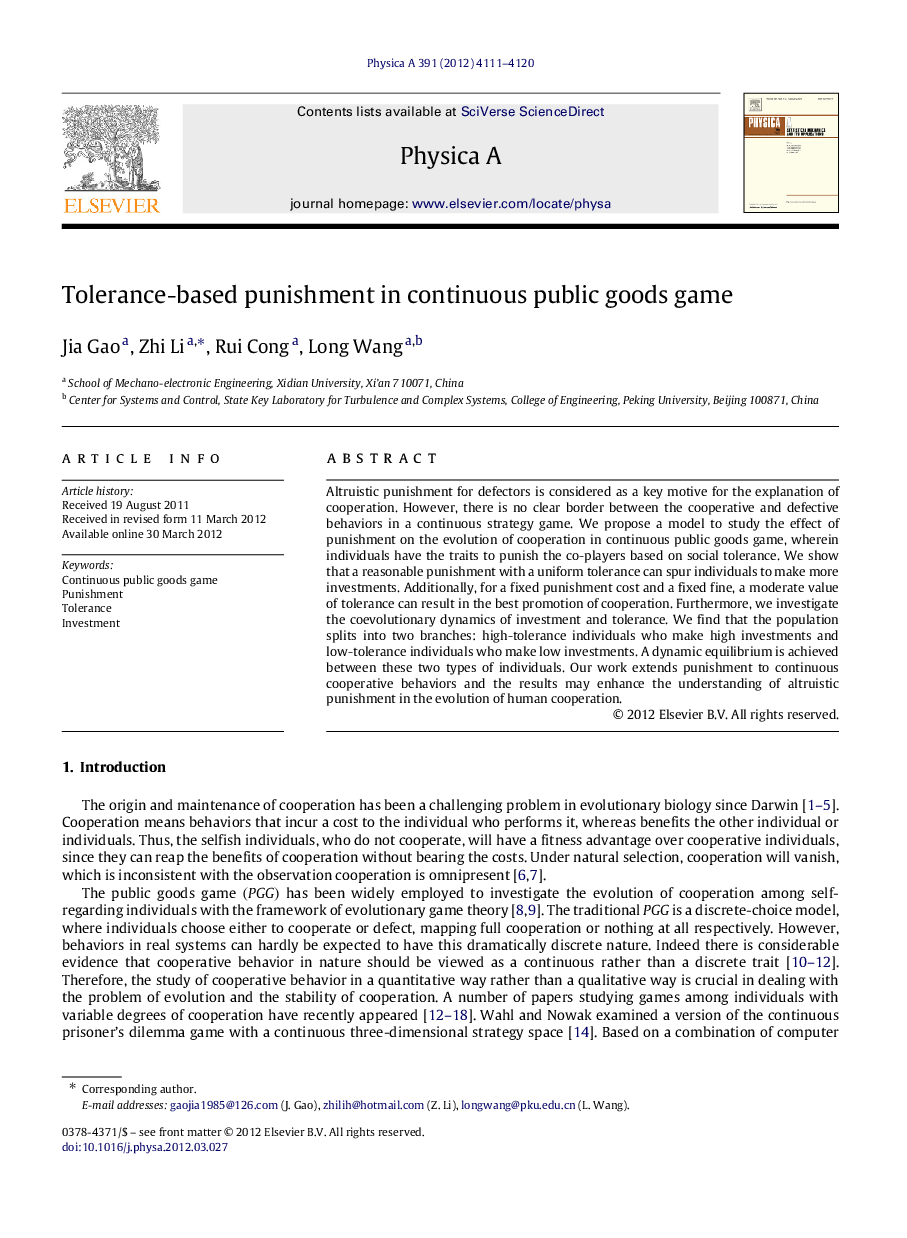| Article ID | Journal | Published Year | Pages | File Type |
|---|---|---|---|---|
| 976209 | Physica A: Statistical Mechanics and its Applications | 2012 | 10 Pages |
Altruistic punishment for defectors is considered as a key motive for the explanation of cooperation. However, there is no clear border between the cooperative and defective behaviors in a continuous strategy game. We propose a model to study the effect of punishment on the evolution of cooperation in continuous public goods game, wherein individuals have the traits to punish the co-players based on social tolerance. We show that a reasonable punishment with a uniform tolerance can spur individuals to make more investments. Additionally, for a fixed punishment cost and a fixed fine, a moderate value of tolerance can result in the best promotion of cooperation. Furthermore, we investigate the coevolutionary dynamics of investment and tolerance. We find that the population splits into two branches: high-tolerance individuals who make high investments and low-tolerance individuals who make low investments. A dynamic equilibrium is achieved between these two types of individuals. Our work extends punishment to continuous cooperative behaviors and the results may enhance the understanding of altruistic punishment in the evolution of human cooperation.
► We extend punishment to the continuous strategy game. ► A moderate tolerance can result in the best promotion of cooperation. ► Individuals with similar cooperative levels exist in cluster. ► The coevolutionary dynamics of cooperation and tolerance are also investigated.
